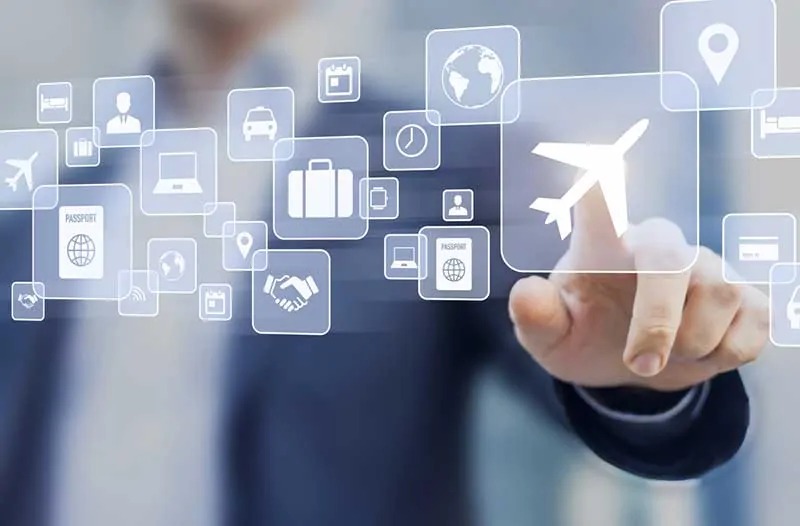How Technology is Impacting the Travel Industry
Introduction:
The travel industry, once characterized by traditional methods and manual processes, has undergone a profound transformation with the integration of technology. From the planning phase to the travel experience itself, technology has become a pervasive force, revolutionizing the way people explore the world. In this comprehensive analysis, we will delve into the multifaceted ways in which technology is influencing and shaping the travel industry.
1. **Digital Booking Platforms: Revolutionizing Travel Planning**
One of the most evident impacts of technology on the travel industry is the evolution of digital booking platforms. Online travel agencies (OTAs) and booking websites have streamlined the entire travel planning process, allowing users to research, compare, and book flights, accommodations, and activities with unprecedented ease. Platforms like Expedia, Booking.com, and Airbnb have become integral to travelers worldwide, providing a vast array of options and real-time availability, significantly reducing the reliance on traditional travel agents.
2. **Mobile Applications: Empowering On-the-Go Travelers**
Mobile applications have become indispensable tools for modern travelers. From itinerary management and navigation to translation and local recommendations, travel apps offer a comprehensive suite of features. Major airlines and hotel chains have developed user-friendly apps that allow travelers to check-in, access boarding passes, and receive real-time updates on flights. Additionally, navigation apps like Google Maps facilitate seamless exploration of new destinations, enhancing the overall travel experience.
3. **Artificial Intelligence (AI) and Machine Learning: Personalizing Travel Experiences**
Artificial Intelligence and Machine Learning are playing a pivotal role in personalizing travel experiences. AI algorithms analyze user preferences, past behaviors, and contextual data to offer tailored recommendations for flights, accommodations, and activities. Chatbots powered by AI assist travelers in real-time, addressing queries and providing support throughout their journey. The ability of AI to predict trends and understand individual preferences contributes to a more customized and enjoyable travel experience.
4. **Virtual and Augmented Reality: Transforming Pre-travel Exploration**
Virtual Reality (VR) and Augmented Reality (AR) technologies are transforming the way travelers explore and plan their trips. VR allows users to virtually visit destinations, experience accommodations, and preview attractions before making decisions. AR applications enhance the in-destination experience by providing real-time information about points of interest, historical sites, and cultural landmarks. These immersive technologies bridge the gap between the virtual and physical worlds, enabling travelers to make more informed choices.
5. **Blockchain Technology: Enhancing Security and Streamlining Transactions**
Blockchain technology is making inroads into the travel industry, primarily in areas related to security and transactions. Decentralized platforms built on blockchain enhance the security of traveler data, reducing the risk of fraud and identity theft. Smart contracts powered by blockchain facilitate secure and transparent transactions, impacting areas such as ticketing, accommodation bookings, and travel insurance. This technology has the potential to revolutionize payment systems, making them more efficient and secure.
6. **Internet of Things (IoT): Creating Smart Travel Environments**
The Internet of Things (IoT) is creating smart travel environments by connecting devices and systems to enhance efficiency and convenience. IoT-enabled devices such as smart luggage, connected hotel rooms, and wearable technology provide travelers with seamless experiences. For example, smart hotel rooms may adjust lighting and temperature preferences based on guest history, and wearable devices can offer real-time health and location data for enhanced safety during outdoor activities.
7. **Big Data Analytics: Shaping Strategic Decision-Making**
Big Data analytics has emerged as a crucial tool for the travel industry, providing valuable insights into consumer behavior, preferences, and industry trends. Airlines, hotels, and travel agencies leverage data analytics to optimize pricing strategies, tailor marketing campaigns, and improve overall customer satisfaction. The ability to analyze vast amounts of data in real-time empowers businesses to make data-driven decisions, enhancing operational efficiency and competitiveness.
8. **Social Media Influence: Real-time Travel Inspiration and Reviews**
The influence of social media on travel cannot be overstated. Platforms like Instagram, Facebook, and Twitter serve as powerful tools for real-time travel inspiration and sharing experiences. Travelers often rely on user-generated content and reviews to make informed decisions about destinations, accommodations, and activities. Influencers and travel bloggers contribute to the digital narrative, shaping perceptions and trends within the travel industry.
9. **Biometric Technology: Streamlining Airport Processes**
Biometric technology is streamlining airport processes, reducing wait times, and enhancing security. Facial recognition and fingerprint scanning technologies are being implemented for check-in, security screening, and boarding processes. This not only improves the efficiency of airport operations but also enhances the overall travel experience by minimizing queues and eliminating the need for physical documents.
10. **Environmental Monitoring and Sustainable Travel Solutions**
Technology is playing a crucial role in promoting sustainable travel practices. Environmental monitoring tools help assess the impact of tourism on ecosystems, guiding the development of responsible travel initiatives. Additionally, technology facilitates the implementation of sustainable solutions, such as electronic ticketing, carbon offsetting programs, and eco-friendly accommodation options. Apps and platforms dedicated to sustainable travel provide information and resources for conscious travelers seeking eco-friendly experiences.
Conclusion:
Technology has become an integral force shaping every aspect of the travel industry. From the initial stages of planning and booking to the in-destination experience, innovative technologies are redefining how people explore the world. As the industry continues to evolve, travelers can expect even more personalized, efficient, and sustainable experiences, driven by the ongoing advancements in technology. Embracing these transformative changes allows both businesses and travelers to navigate the dynamic landscape of the travel industry with greater ease and efficiency.







